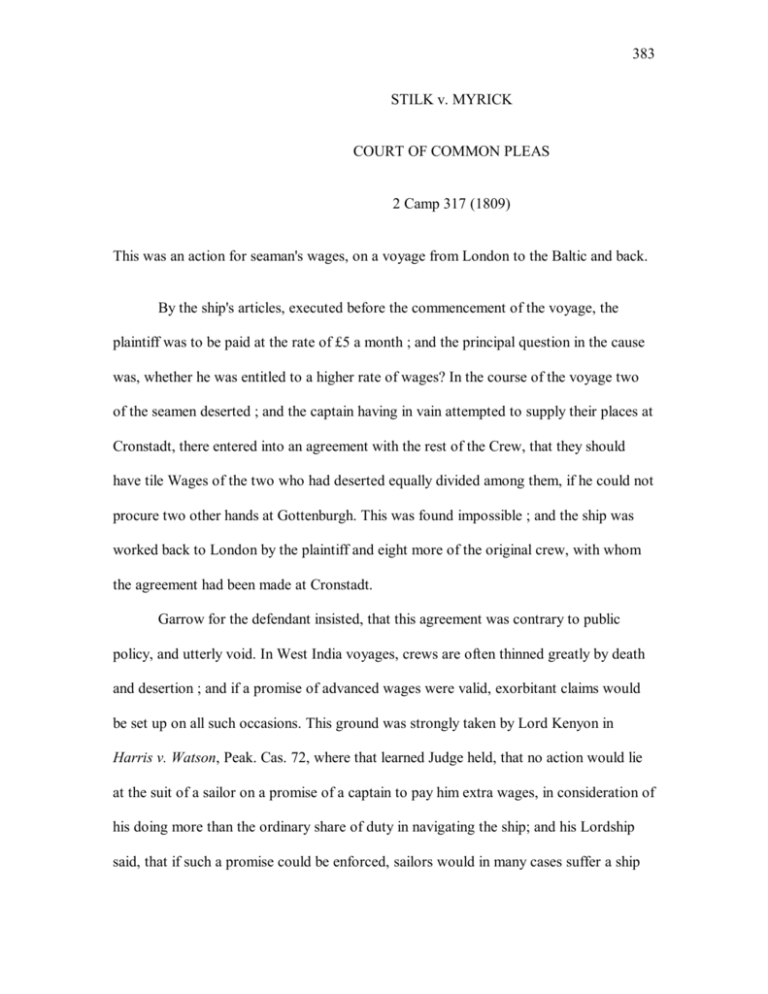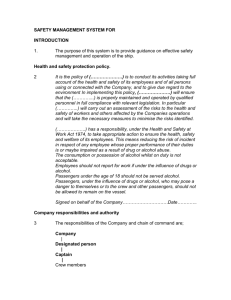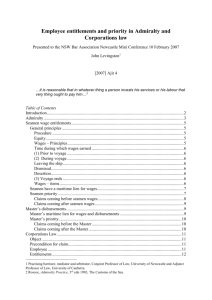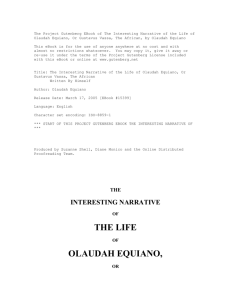383 STILK v. MYRICK COURT OF COMMON PLEAS 2 Camp 317
advertisement

383 STILK v. MYRICK COURT OF COMMON PLEAS 2 Camp 317 (1809) This was an action for seaman's wages, on a voyage from London to the Baltic and back. By the ship's articles, executed before the commencement of the voyage, the plaintiff was to be paid at the rate of £5 a month ; and the principal question in the cause was, whether he was entitled to a higher rate of wages? In the course of the voyage two of the seamen deserted ; and the captain having in vain attempted to supply their places at Cronstadt, there entered into an agreement with the rest of the Crew, that they should have tile Wages of the two who had deserted equally divided among them, if he could not procure two other hands at Gottenburgh. This was found impossible ; and the ship was worked back to London by the plaintiff and eight more of the original crew, with whom the agreement had been made at Cronstadt. Garrow for the defendant insisted, that this agreement was contrary to public policy, and utterly void. In West India voyages, crews are often thinned greatly by death and desertion ; and if a promise of advanced wages were valid, exorbitant claims would be set up on all such occasions. This ground was strongly taken by Lord Kenyon in Harris v. Watson, Peak. Cas. 72, where that learned Judge held, that no action would lie at the suit of a sailor on a promise of a captain to pay him extra wages, in consideration of his doing more than the ordinary share of duty in navigating the ship; and his Lordship said, that if such a promise could be enforced, sailors would in many cases suffer a ship 384 to sink unless the captain would accede to any extravagant demand they might think proper to make. … Lord Ellenborough: I think Harris v. Watson was rightly decided ; but I doubt whether the ground of public policy, upon which Lord Kenyon is stated to have proceeded, be the true principle on which the decision is to be supported. Here, I say, the agreement is void for want of consideration. There was no consideration for the ulterior pay promised to the mariners who remained with the ship. Before they sailed from London they had undertaken to do all that they could under all the emergencies of the voyage. They had sold all their services till the voyages would be completed. If they had been at liberty to quit the vessel at Cronstadt, the case would have been quite different ; or if the captain had capriciously discharged the two men who were wanting, the others might not have been compellable to take the whole duty upon themselves, and their agreeing to do so might have been a sufficient consideration for the promise of an advance of wages. But the desertion of a part of the crew is to be considered an emergency of the voyage as much as their death ; and those who remain are bound by the terms of their original contract to exert themselves to the utmost to bring the ship in safety to her destined port. Therefore, without looking to the policy of this agreement, I think it is void for want of consideration, and that the plaintiff can only recover at the rate of £5 a month. Verdict accordingly.












